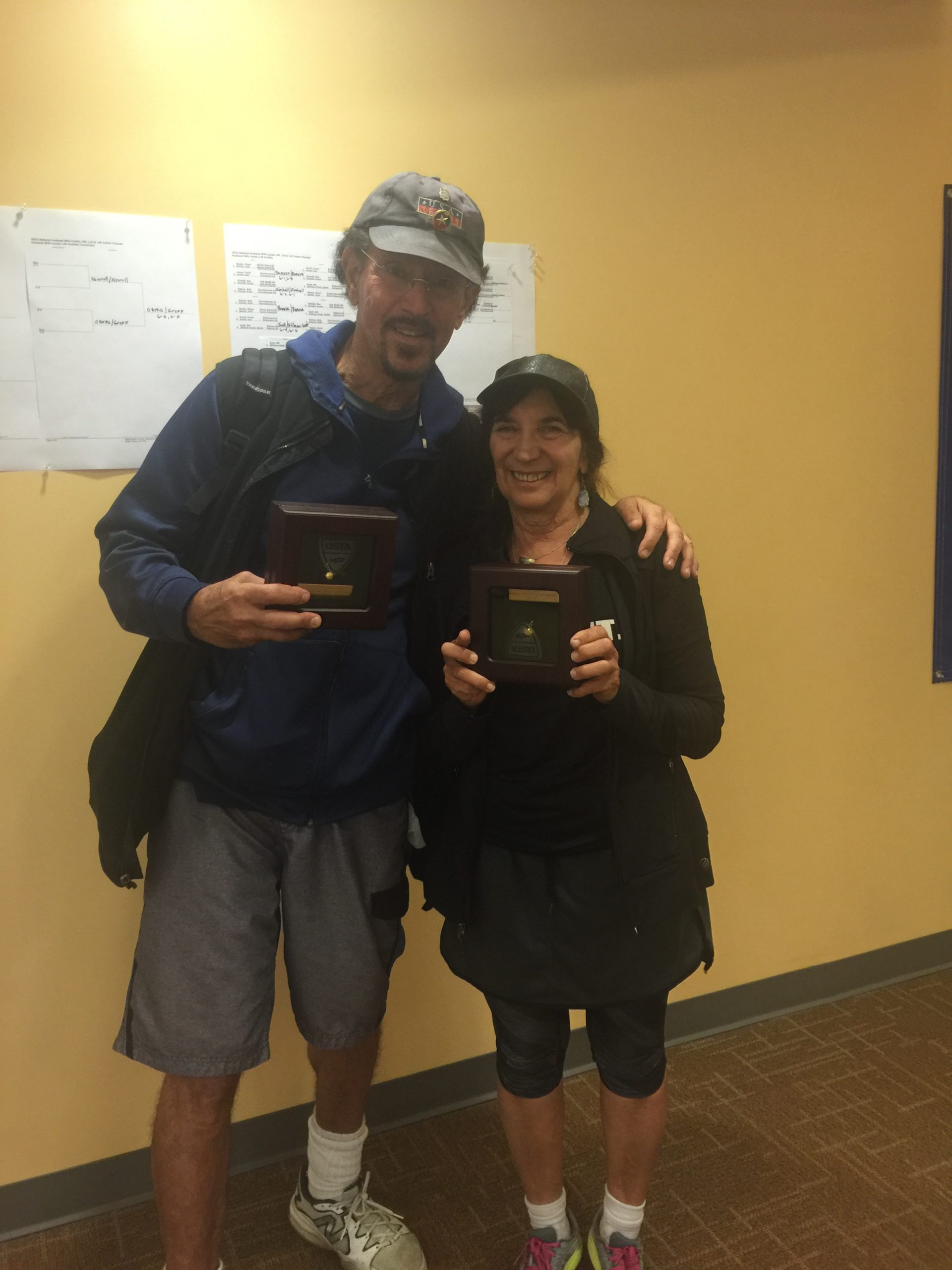
Alan and Judy Schreiber have traveled across the globe and country competing in husband and wife tennis tournaments for a number of years now. They have won multiple gold medals, or “gold balls” as they like to put it, their latest being a gold in the 70-74 age group at the 30th anniversary of the National Senior Olympics, hosted by the National Senior Games Association, in June 2017 at Birmingham-Southern College.
The Schreibers may not have returned to their East Quogue home with a gold ball from their latest foray, the USTA National Husband-Wife Doubles Clay Court Championships at Olde Providence Racquet Club in Charlotte, North Carolina, which was April 30 to May 4, but they did earn a silver, and that’s alright, Judy Schreiber said.
“The silver ball is the silver lining in the COVID,” she aptly put it.
In the 150 combined-age division, the Schreibers went 3-0 in their group-stage play. After losing their first set of their first match, they rattled off six straight set victories to advance to the semifinals, where they defeated Julian and Michele Rainwater of Jacksonville, Florida, before falling to Harry and Brenda Carter of Raleigh, North Carolina, 6-4, 6-0, in the finals.
Alan, a clinical psychologist, has been recently undergoing radiation treatment for prostate cancer, while Judy, an artist, is scheduled for a hip replacement this month. The Schreibers, who are members of Westhampton Beach Tennis and Sport, said with their recent health being what it is, with limited time to train, and not having played any competitive matches in a year and a half due to the pandemic, they were particularly happy with their outcome, maybe more so than their gold medals.
“We didn’t know what to expect. We certainly weren’t expecting to win a gold ball, since it was a not a regular year,” Ms. Schreiber said. “We had been trying to hit three or four days a week. I wouldn’t exactly call it training, we were just trying to keep in shape.”
Mr. Schreiber said the semifinal match being rescheduled due to rain to the same day as the finals didn’t help things. An hour rest between the two wasn’t enough, he said.
“We just simply ran out of gas,” added Mr. Schreiber, who also noted that tennis has kept him going through his cancer treatment.
“Got to push through the fatigue,” he said. “When it comes to the prostate cancer treatment and the radiation, you don’t to want to do stuff and tend to deteriorate. But we played as much as we could down in Florida during the winter and I got to play every day after the radiation. The treatment itself is only about 10 minutes, and it’s not like you feel like you’re getting radiated, generally speaking, but afterwards sometimes you just don’t want to get in that exercise, but, thanks to Judy, we did that every day.”
The Schreibers have won a gold medal on every tennis surface except for grass and that may be a future goal for them to obtain, they said, but they’ll take the next few months off to recover from their maladies, then get right back to training with an eye to get back into competition by this fall.
“It really is a nice activity,” Mr. Schreiber said of playing nationally-sanctioned tennis competitions. “You meet people everywhere you go. It really has been wonderful.”